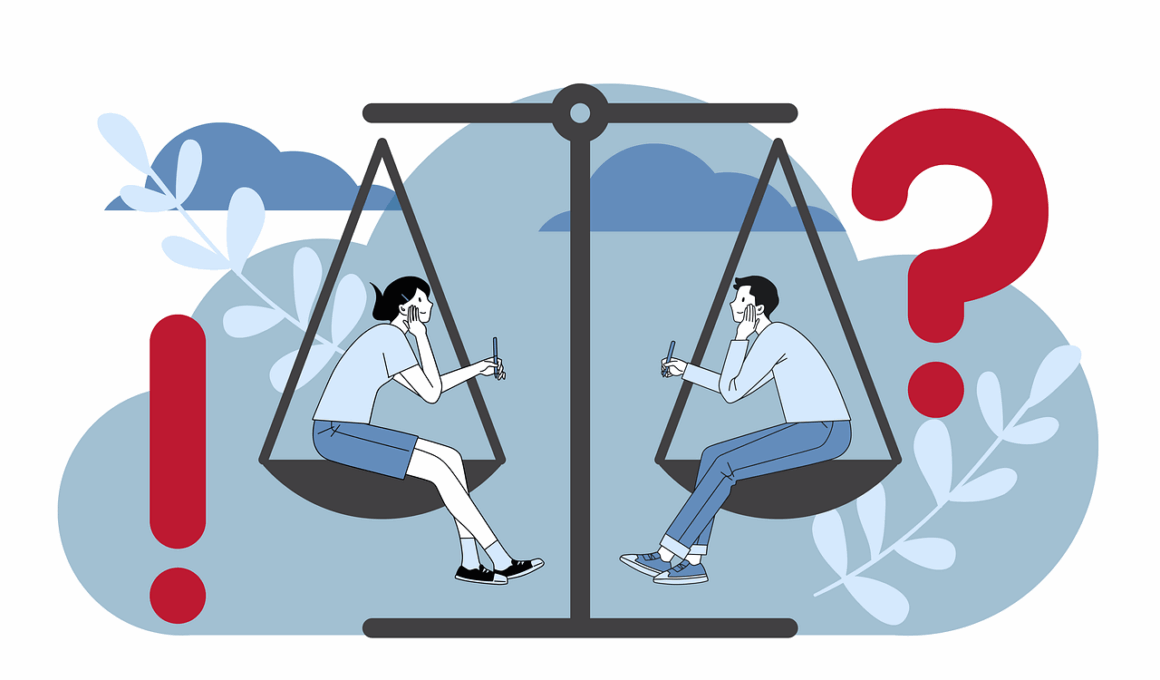Role Models in Sports
Role models play a pivotal role in shaping the values and ethics in sports, particularly concerning integrity and fair play. Athletes who exhibit strong moral principles inspire countless fans and budding sports players. They demonstrate that success can be attained through hard work and honesty rather than through shortcuts or unethical behavior. Prominent sports figures like Serena Williams and Tom Brady have become symbols of commitment to excellence while maintaining integrity. Modern athletes are often scrutinized, and their decisions resonate beyond the playing field. When they uphold fairness, they foster a culture where respect, support, and fairness are prioritized. Knowing that young athletes often replicate the behaviors they observe, the emphasis on strong ethical behavior from role models becomes increasingly relevant. Therefore, the repeating cycles of positive and negative influences signify the need for accountability among sports icons. Consequently, organizations involved in sports should advocate for ethical behavior on and off the court. By establishing strong ethics, they can mold future generations to cherish principles of honor in competition. The sense of fairness is crucial to preserving the integrity and emotional connection to sports.
Integrity in Athletic Performance
The integrity of athletic performance hinges on the ethics infused within the sports environment. Illustrating why it’s vital for athletes to embody sportsmanship serves as a guideline for behavior expected in competitions. Ethical conduct includes honesty in representing capabilities and transparency in interactions with teammates and officials. Athlete-led initiatives that promote fair play significantly contribute to a culture that values integrity. Moreover, ethical dilemmas often emerge in high-stakes situations, amplifying the importance of role models who demonstrate steadfast commitment to fair competition. For instance, during the Olympics, athletes face immense pressure to succeed, often challenging their integrity. Thus, role models help establish expectations surrounding ethics, making it easier for competitors to navigate moral challenges. Many athletes who have experienced success through ethical means serve as mentors for upcoming talent. They mentor others by sharing their experiences, thereby offering real-life examples of decisions aligned with integrity. Additionally, instilling clear standards of ethical behavior into training helps cultivate a wholesome guiding principle for aspiring athletes. Ultimately, the perseverance of integrity remains essential for fostering sincere competition, as it shapes the overall spirit of sports.
The Influence of Media
The media landscape profoundly influences sports ethics through the coverage and portrayal of athletes. Positive exposure of role models enforces the value of integrity within the sports community substantially. When the media highlights athletes committed to sportsmanship, it reinforces the significance of ethical behavior and encourages younger athletes to emulate such standards. Storytelling around honest competition helps disseminate core values of respect and fairness to audiences, further cultivating an ethics-driven environment. Consequently, aspiring athletes often seek out figures promoted by the media, heralding them as icons of what true sportsmanship embodies. Despite the prevalence of negative media narratives surrounding controversies, journalism surrounding positive ethical examples can shift public perception. Athletes willing to engage with media platforms can amplify the narratives of honesty and fair play. This interaction serves as a bridge for advocates, encouraging dialogue around effective mentorship initiatives aimed at fostering strong ethical behavior. Recognizing the power media institutions wield allows stakeholders to prioritize discussions defending integrity-enhancing behaviors. Therefore, a symbiotic relationship between role models and responsible media representation is integral in shaping ethical standards in sports culture.
The Role of Education
Education plays a cardinal role in instilling strong ethical principles related to fair play and integrity in sports. Institutions focused on forming aspiring athletes emphasize the interconnectedness between character building and athletic performance. Courses on sportsmanship and ethics establish a solid foundational understanding of personal accountability, respect for opponents, and compliance with regulations. Incorporation of dedicated sports ethics education into programs allows institutions to cultivate an environment where students can explore moral dilemmas faced in sports. Additionally, educational materials that revolve around successful athletes known for their integrity provide relatable examples. Such curricula equip young athletes with tools to navigate situations involving ethical dilemmas. They can recognize the long-term benefits of upholding moral standards rather than succumbing to temptations that compromise their integrity. Furthermore, workshops emphasizing teamwork and cooperative play encourage athletes to appreciate diverse perspectives, effectively nurturing mutual respect. As students respond positively to these lessons, they develop strong ethical foundations that will accompany their sports careers. The rich intersection of sports and education promotes a culture where integrity essentially becomes ingrained in the fabric of athletic endeavors.
Promoting ethical standards also involves fostering connections within community engagement projects. Engaging local organizations creates opportunities for role models to share insights regarding sportsmanship. Collaborations between community initiatives and seasoned athletes pave ways for mentorship programs that impart essential ethical principles. Furthermore, these joint endeavors cultivate goodwill through mentorship, reinforcing the significance of integrity across communities. Athletes taking time to give back while exemplifying ethical behavior solidify their role model status among youth. The community sees firsthand the dedication of these athletes to not only excel but also inspire others. Educative community programs focusing on fairness and respect serve to bolster the message of integrity in sports. Awareness campaigns organized by local sports organizations highlight the importance of ethical behavior both in and out of competitive arenas. Encouraging local youth to engage in such ventures enhances their understanding of sport’s ethical dimensions while inspiring them to prioritize fair play. This collective effort emphasizes the personalization of integrity within their community and the sports realm, fostering a cycle of positive values volunteers and athletes can sustain.
Moreover, ethical challenges in sports are a significant topic of discussion in academic venues. Universities and organizations dedicated to sports ethics often hold forums, symposiums, and workshops centered on integrity in athletics. With keynote speakers comprising reputable athletes advocating for ethical conduct, these events open discussions about the importance of integrity. By presenting real experiences, these athletes illustrate the broader implications unethical behavior can have on team dynamics and overall sport integrity. Additionally, these events create safe spaces for students to dissect various ethical situations, allowing them to develop critical thinking skills regarding decision-making. Ultimately, academic engagement deepens understanding and promotes the cultivation of a progressive ethical culture in sports. These interactions between leading athletes and academic institutions form a robust response to unethical behaviors witnessed in sports. Engaging multiple stakeholders will facilitate discourse regarding integrity and reinforce the commitment to ethical principles in sports by actively tackling relevant issues. This proactive approach elucidates the nuances of navigating ethical dilemmas while empowering future athletes.
In conclusion, the role of integrity in sports cannot be overstated, as it forms the foundational bedrock of competitive play. The embodiment of ethics by role models serves as both a guideline and aspiration for athletes looking to navigate the complex world of sports. The synergy between integrity, good sportsmanship, education, and media representation propels the sports community towards higher ethical standards. By prioritizing fairness, the sports environment evolves into a space of mutual respect and accountability. Collective efforts from athletes, organizations, educators, and media stakeholders are crucial to sustaining the emphasis on ethical behavior. Educating young athletes to value integrity promotes a positive ethos that influences future generations throughout the sporting sphere. Moreover, collaborative community initiatives amplify the discussion on ethics, allowing athletes to articulate their understanding of fair play while showcasing their commitment to ethical principles. As this multifaceted landscape develops, championing role models who have achieved success through integrity will transform the tapestry of sports history. This culture fosters not only enhanced athletic performance but also a sense of responsibility that transcends the game, encouraging young aspiring athletes to prioritize ethics.
Aiming towards a future that embraces sportsmanship and ethical competition, it is crucial to maintain the dialogue surrounding the significance of integrity within the domain of sports. Role models who emanate ethical values significantly impact the perceptions of youth involved in sports, urging them towards respect and accountability. By intertwining integrity as a core principle in sports culture, stakeholders ensure that the emphasis on fair play remains resolute, driving long-lasting, positive changes throughout various sports disciplines. This common commitment inspires personal growth and a sense of belonging among sports participants of all levels. In doing so, the sporting community can serve as a beacon of hope, demonstrating that integrity amplifies the essence of athletic endeavors. Cultivating environments where ethical behaviors flourish amplifies the overall spirit of competition, enhancing experiences for athletes and fans alike. By prioritizing integrity, the landscape of sports will continue to evolve positively, impacting generations to come. Determining the best ways forward with respect to ethics in sports ultimately defines the play to be fair, encouraging excellence not just in winning but in character development.





